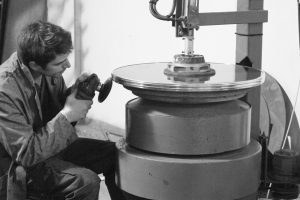Agriculture and technology are no longer considered distinct fields with no connection whatsoever with each other. In fact, in the last five years, technologies such as artificial intelligence have made steady forays into the field of agriculture. It would not be an exaggeration to say that artificial intelligence has been increasingly making agriculture more efficient and cost-effective.
So, if you have decided to study artificial intelligence and work in improving the conditions of agriculture in the country, you have certainly chosen the right path. There is a lot of scope of work in this field.Machine learning is a part of the technology that logical minds understand better. An ML career blends math, business analysis, and technology under one umbrella. Here are some of the areas that you can focus on after the completion of your artificial intelligence course.
Improvements in crop productivity
Climate change has made traditional agricultural knowledge insufficient to bank on, especially when it comes to predicting weather patterns on which seasonal farming practices are dependent on. According to the experts at the top agriculture university in rajasthan, the use of AI-driven predictive analysis can be really helpful for the farmers because it can help in determining the right crops to grow on a productive terrain in a favorable climate, and also reduce costs by increasing productivity.
Monitoring soil health
Besides favorable weather conditions, soil health is also dependent on the right levels of nutrients and moisture. It is one of the crucial factors in ensuring the highest yield from the land. AI can help in soil monitoring through deep learning models and image recognition. Thus, it will help in taking corrective measures for restoring soil health. Historical and present data, along with snapshots of the farm can help in creating AI models. You can also take up this line of work after completing an artificial intelligence course in Jaipur.
Optimizing for weed and pest management
AI is useful in predicting pest behavior that can come in aid for advanced planning related to pest control. Effective pest management can lead to lower environmental and crop damage. The right combination of weather data, effective image classification tools, remotely sensed data, and other crucial data points can be useful in distinguishing weeds from the crops. It will help in confining the use of weedicide only to the patches of land that need treatment.
Efficient water management
The problem of water scarcity is looming large over the country. If you are a student of AI who is keen on working in the field of agriculture, you can find ways for more efficient water management. Thermal imaging cameras can be used to optimize water usage in the agricultural field. These cameras help in continuous monitoring of the crops to make sure that they are getting enough water. Image classification models and AI can result in improving crop production, decreasing crop diseases, and reducing the need for manual intervention.
A lot of progress has already been made in including artificial intelligence in agriculture, but there is still a long way to go. And, you can be the expert to take the progress in the field of agriculture further along this line.

